Early History of the New York Watch Company: Part 17 – Guide to “New York Watch Co.” Dials
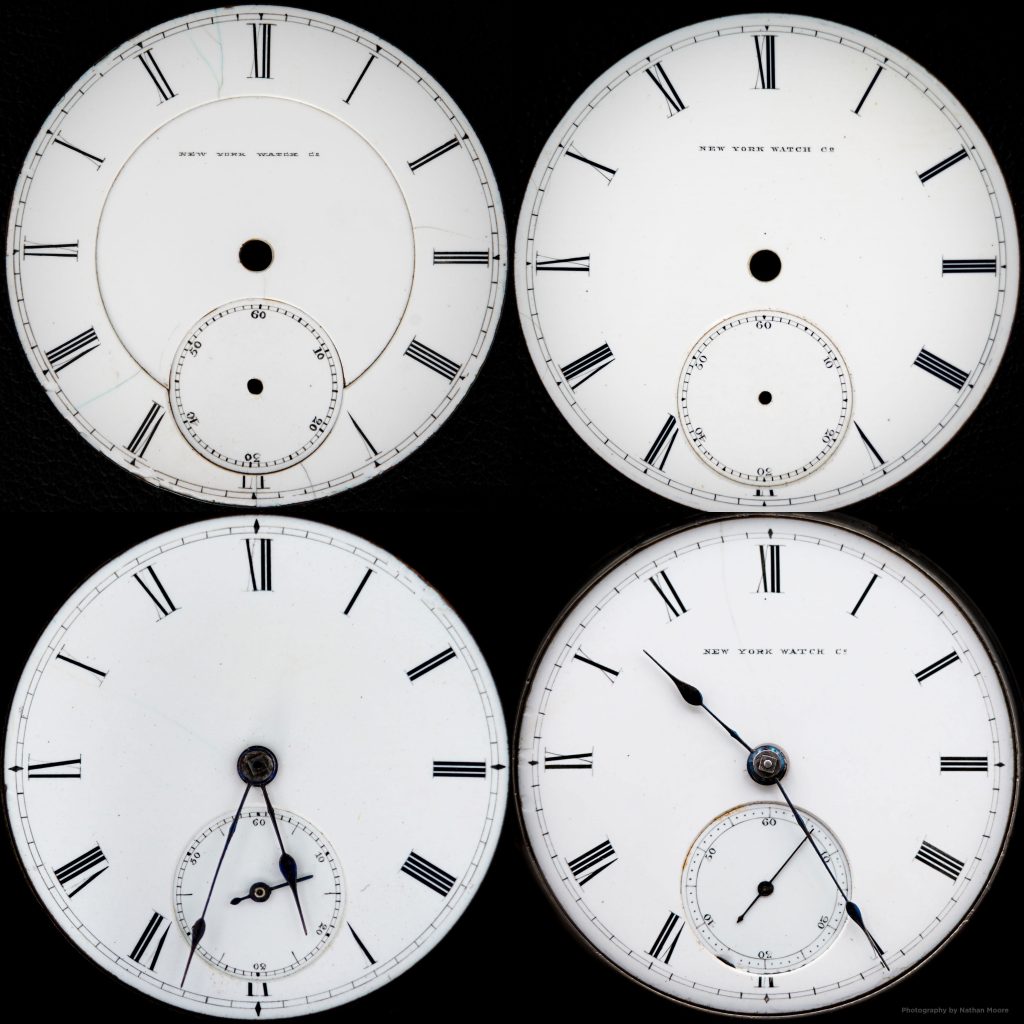
The New York Watch Company cycled through various dial designs with unique traits from 1867 to 1877, when the Hampden Watch Company was formed. Understanding how the style of the dials transitioned through the years can also provide insight into the approximate production date of the watch and offer guidance to determine if a dial has been swapped. Since the dial and hands are the most frequently replaced parts on antique pocket watches, this is critical information for collectors to evaluate originality.
One characteristic consistent with all known dials from the New York Watch Company is the elegant Roman Numeral hour figures around the outer portion of the dial. These dials were all hand-painted, and subtle elements characteristic of painting techniques can be observed under close inspection.
Type 1: The Double-Sunk Dial
When the New York Watch Company introduced the “Springfield Watch” to the market, every movement was fitted with a double-sunk Roman numeral enamel dial, characterized by a large center sink and wide “New York Watch Co.” signature in serif caps.
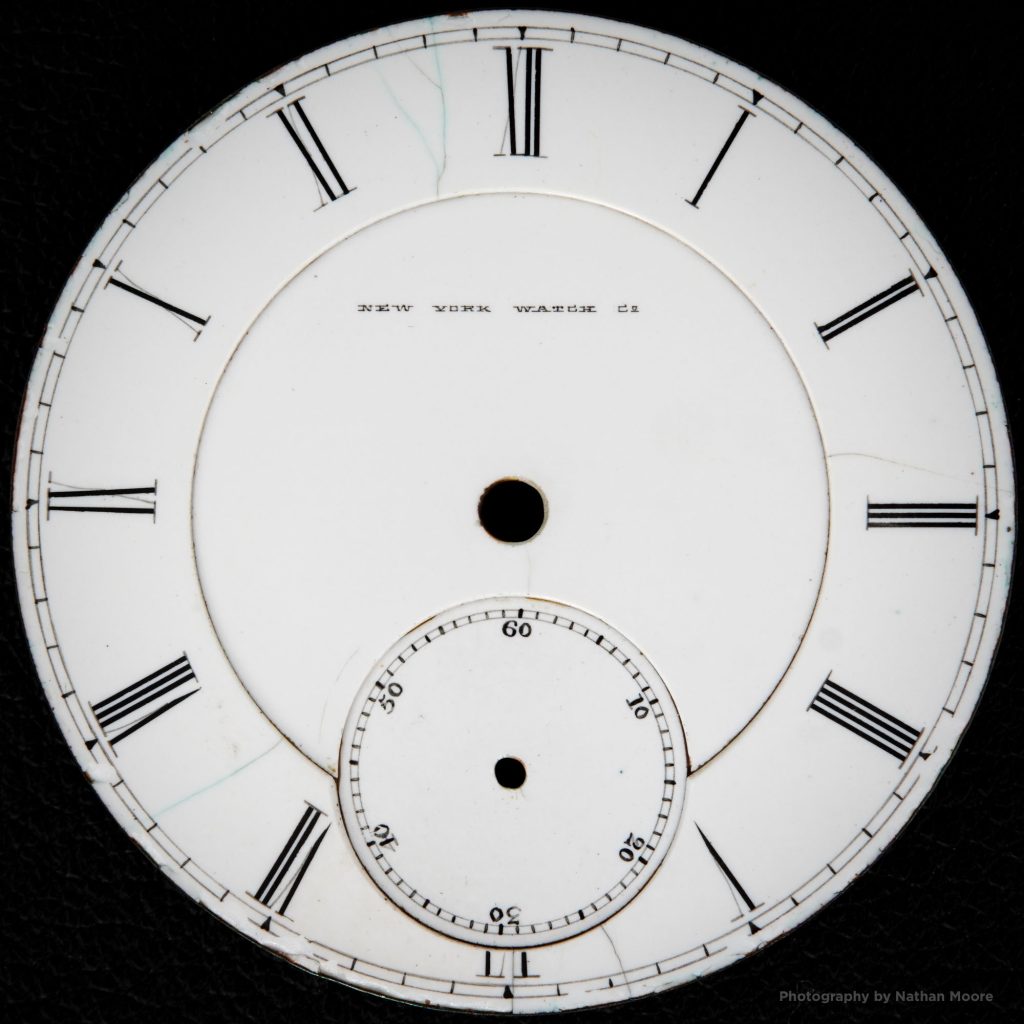
Era: c.1867-1869
Type: Double-Sunk
Hourly Figures: Roman Numeral
Minute Track: Ring
Chapter Markings: 5-Minute Pointer
Signature: New York Watch Co.
Seconds Bit: Ring Track, Delimited, Radial Arabic Figures, Bold 5-Second Chapters
Notes: Double-sunk dials are expected on movements from the early New York Watch Company production. All “Springfield” 3/4-Plate movements should be fitted with double-sunk dials. The earliest Model 1869 3/4-Plate movements are also fitted with double-sunk dials, possibly from leftover inventory after the failure of the “Springfield” watch. These double-sunk dials are prevalent through approximately serial #4500. After this, the factory transitioned exclusively to single-sunk dials until after the Hampden Watch Company was established.
Type 2: “Pointer” Single-Sunk Dial
The first single-sunk dials began to appear on New York Watches around serial #4500. The company never reverted back to double-sunk dial while operating under the New York Watch Company name. These dials are very similar to the double-sunk dials used on early movements, except the signature style is a bit more compressed, and the seconds bit features 5-second pointer markings instead of the boldly lined style. This dial was prevalent throughout the Model 1869 3/4-Plate production.
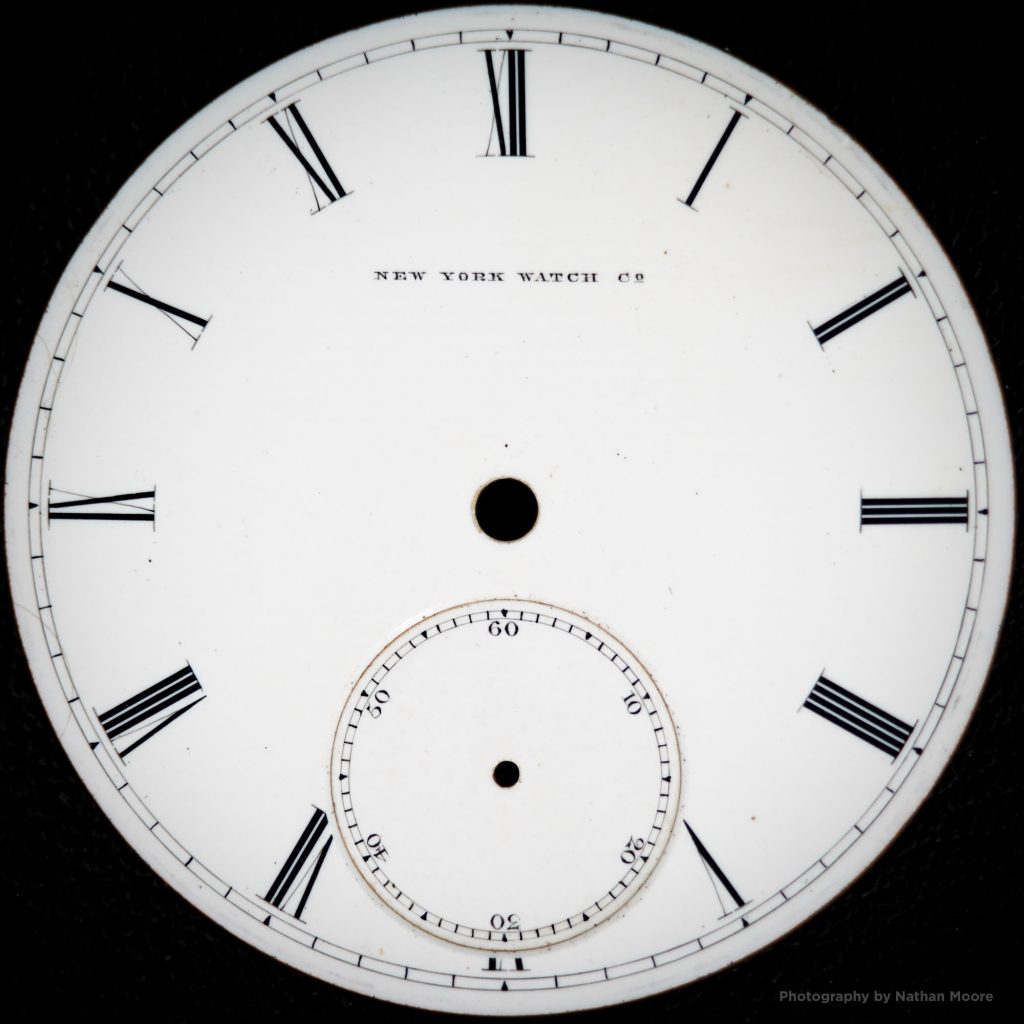
Era: c.1869-1875
Type: Single-Sunk
Hourly Figures: Roman Numeral
Minute Track: Ring
Chapter Markings: 5-Minute Pointer
Signature: New York Watch Co. or Unsigned
Seconds Bit: Ring Track, Delimited, Radial Arabic Figures, 5-Second Pointer Chapters
Type 3: “Diamond” Single-Sunk Dial
When the Model 1870 was introduced, the dial style was changed slightly. The 5-minute pointer chapter markers around the perimeter of the dial were replaced by diamond marks at 15-minute intervals. Additionally, the “half-marks” between figures within the seconds bit were elongated to provide better readability. After some time, the line lengths were shortened and were not as prominent. Interestingly, this seconds bit style was adopted for earliest production at the Hampden Watch Company.
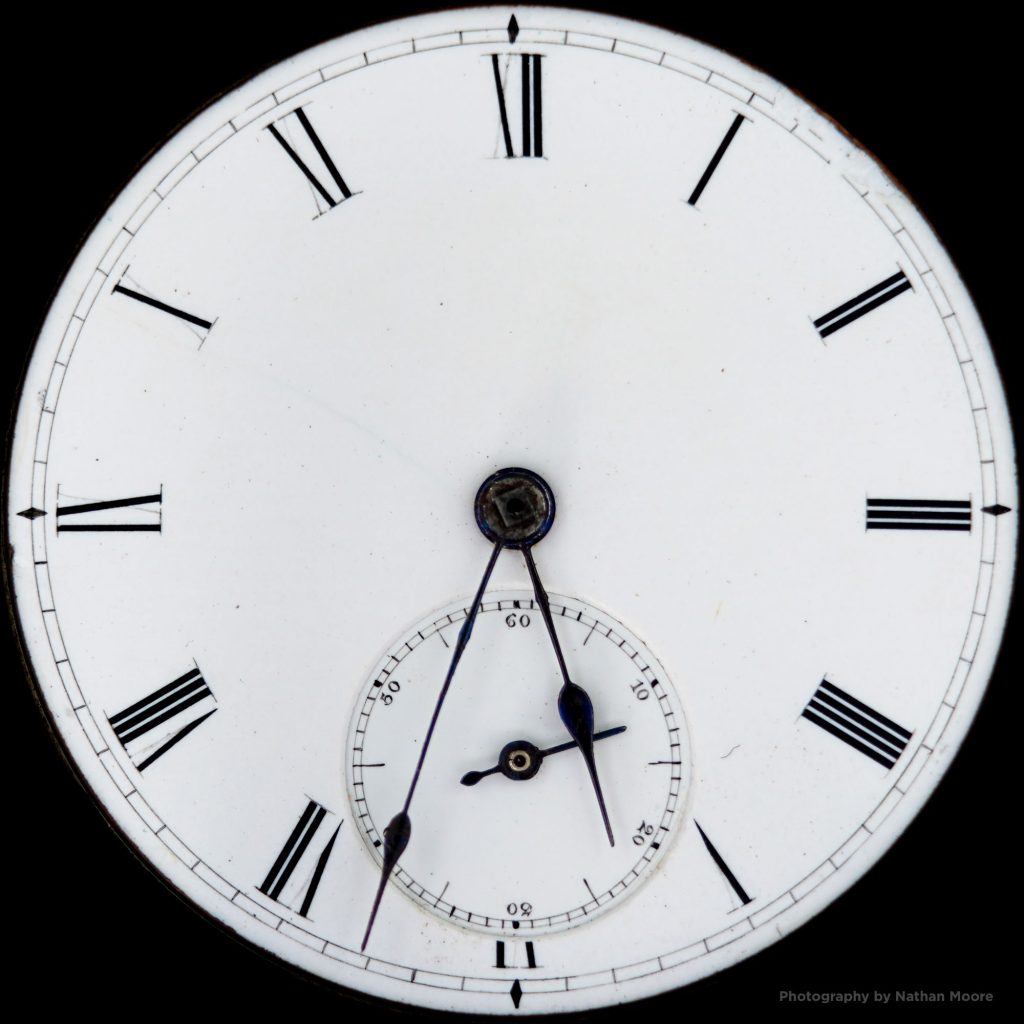
Era: c.1871-1877
Type: Single-Sunk
Hourly Figures: Roman Numeral
Minute Track: Ring
Chapter Markings: 15-Minute Diamond
Signature: New York Watch Co. or Unsigned
Seconds Bit: Ring Track, Delimited, Radial Arabic Figures, Bold Chapters, Enlongated 5-Second Delimiters
Notes: Prevalent on most Model 1870 production and some Model 1873 production.
Type 4: “Dotted” Single-Sunk Dial
Around 1874, the company began issuing dials with a redesigned seconds bit featuring delimitation using dots instead of lines. This style is only seen on a handful of movements, possibly representing the small production between the Panic of 1873 and the reorganization of the Hampden Watch Company. Many late-era New York Watch movements have been recorded with this dial variant.
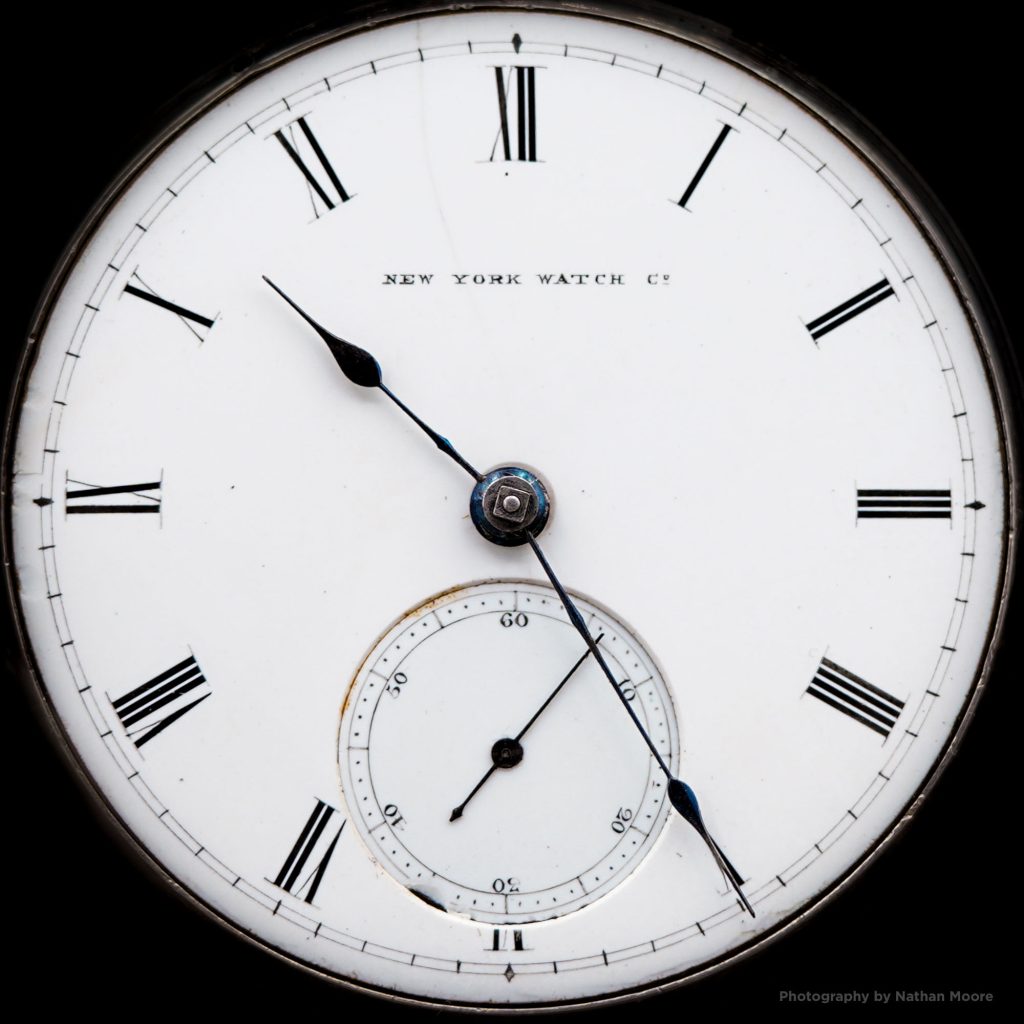
Era: c.1874-1876
Type: Single-Sunk
Hourly Figures: Roman Numeral
Minute Track: Ring
Chapter Markings: 15-Minute Diamond
Signature: New York Watch Co.
Seconds Bit: Ring Track, Delimited with Dots, Radial Arabic Figures, Lined 5-Second Chapters
Notes: “Hampden Watch Co.” dials have been found in this style, likely marked on existing inventory after the reorganization.
Miscellaneous Dials
While cataloging hundreds of watches for this study, a few dials were identified as unusual compared to standard production. These are styles are not common enough to be listed as standard dials, but they are worth attention to showcase that there were dial variants outside of the standard classifications identified above.

Movement #31990
(Private Label “Monitor”)
Image Courtesy of Jones & Horan

Movement #51900
Image Courtesy of The McGuire Group
Additional Notes
During this study, several New York Watch Company movements were observed fitted with script “Hampden Watch Co.” dials. These dials are obvious replacements as this style was not introduced until after transfer methods were developed in the mid-1880s. All dials from the New York Watch Co. era (and the “transition” period to Hampden) were hand-painted.
The Hampden Watch Co. immediately changed the chapter marking style following the reorganization. The earliest dials produced exclusively under the Hampden brand feature 15-minute pointer chapter markers instead of diamonds. Dials that carry the “Hampden Watch Co.” name with diamond chapter markers should be considered original New York Watch Co. material finished by Hampden.


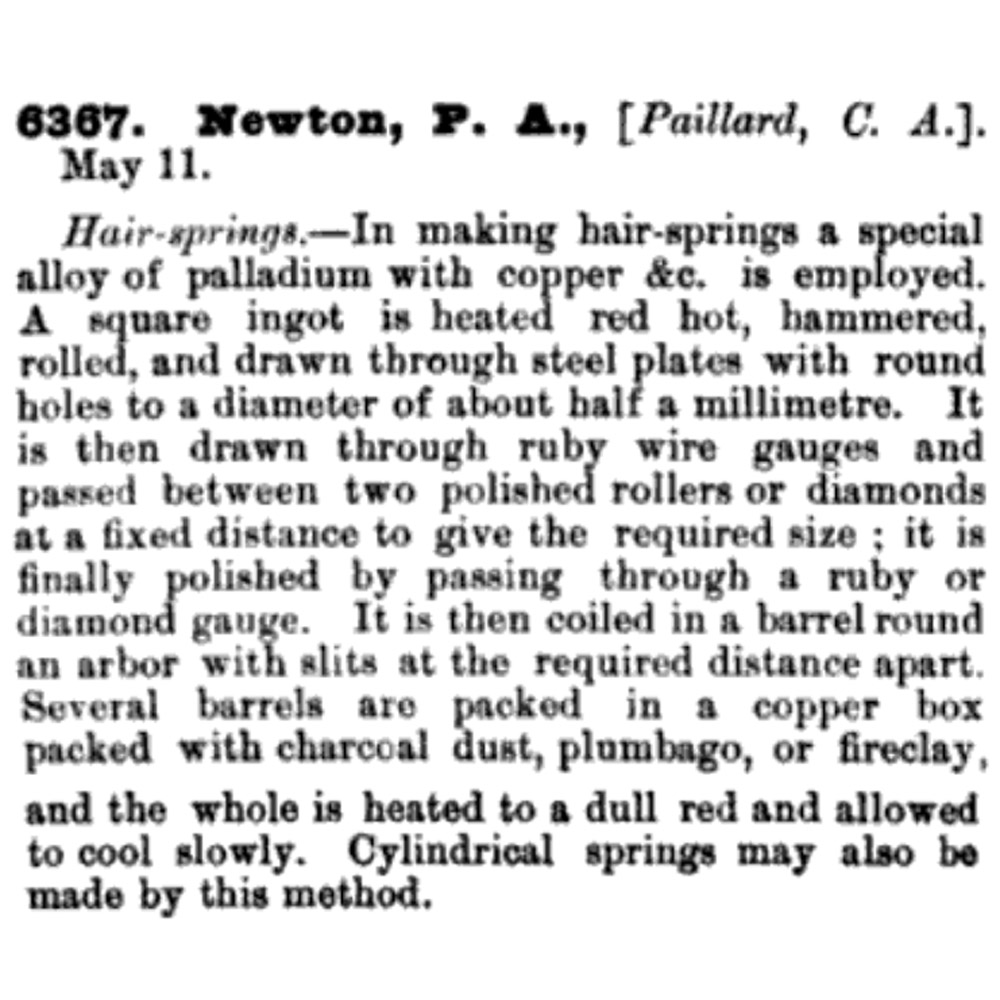
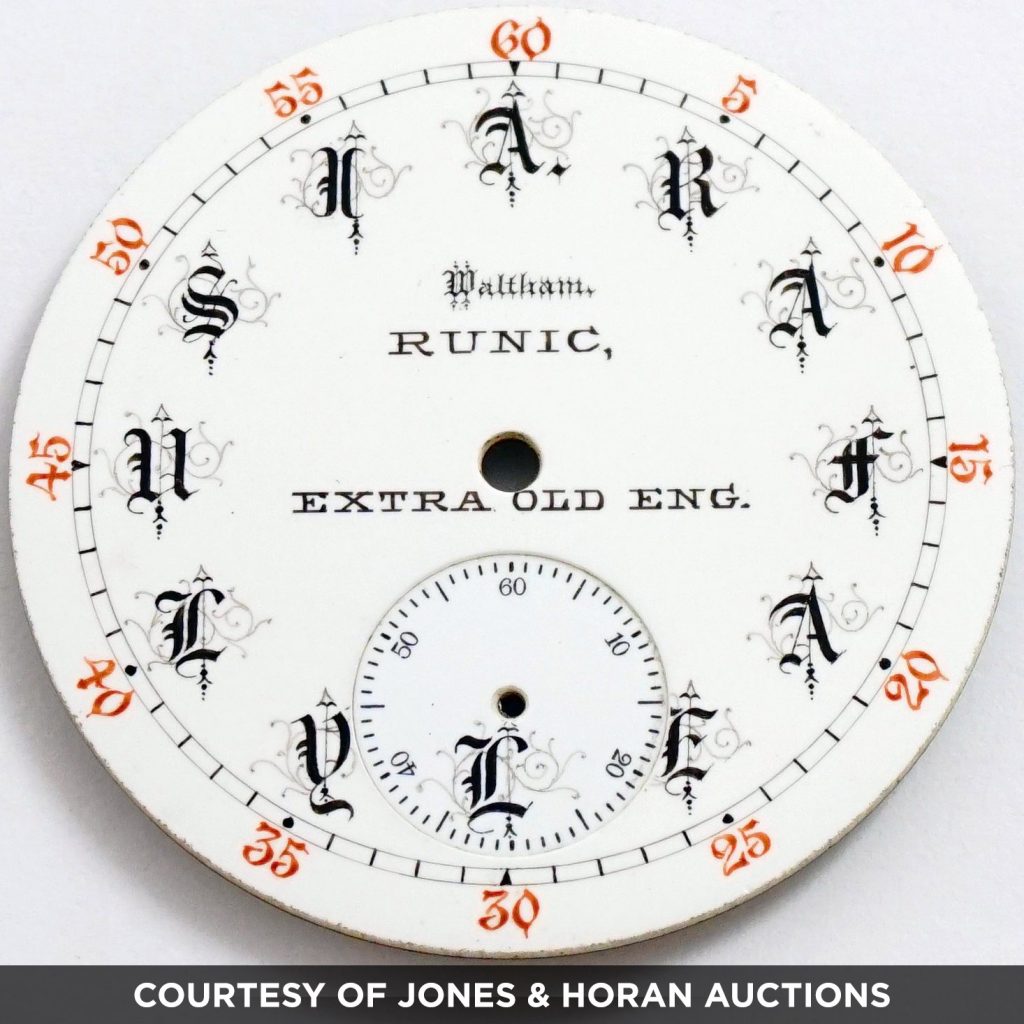
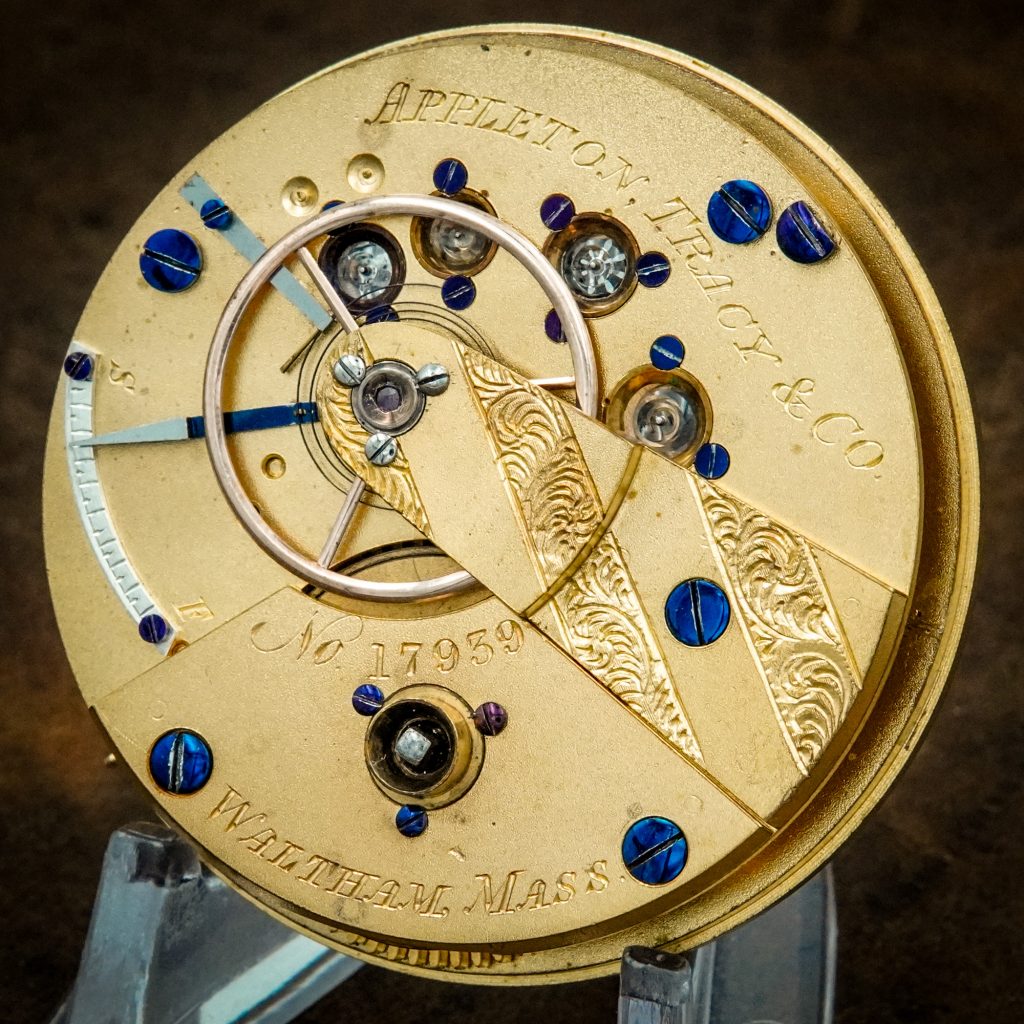
Hi folks
Scouting the net for information on my 1904 Dueber Grand Hampden 12S. Mine has a crack (barely visible on the dial at the two o’clock area
). Do they have replacements available? Or are they reproduced? Mine is the solid 14 K and I would like to make it perfect if possible. Getting up in age so would like to sell it.
Thank you in advance.
Jerry Bode